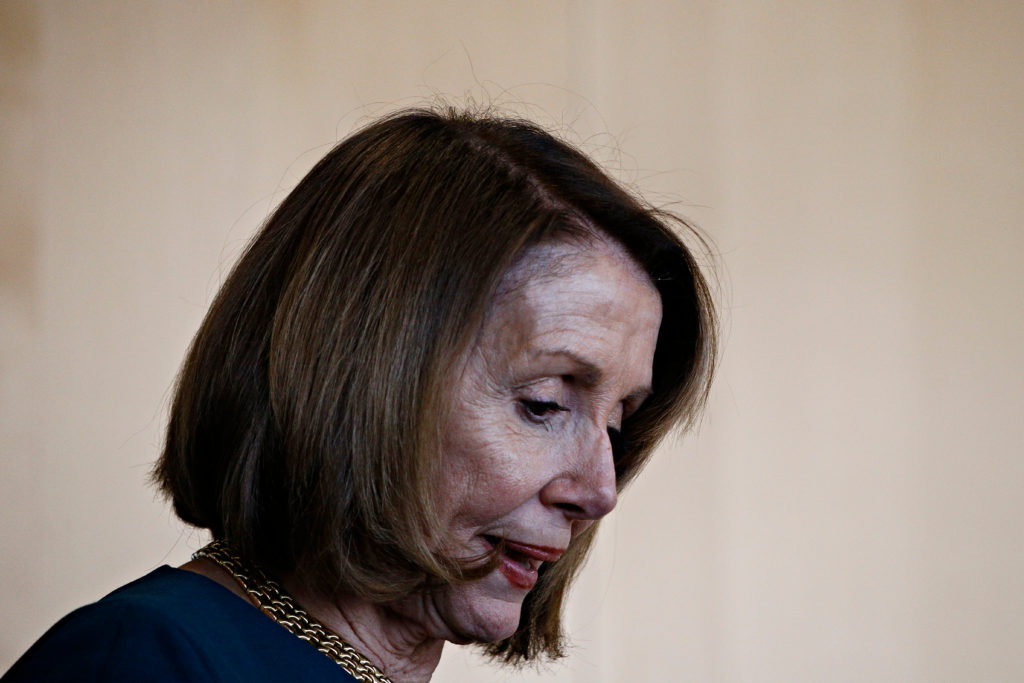
Published September 24, 2021
Democrats have been threatening for years now to “codify Roe v. Wade,” by which they appear to have meant enacting the Women’s Health Protection Act (WHPA), one of the most pro-abortion pieces of legislation Congress has ever considered.
By a narrow 218-211 vote, House Democrats passed the bill late this morning. The vote was nearly party line: Every Democrat except for one voted for the bill, and every Republican voted against it.
It’s been interesting to watch Democrats discuss the bill and struggle with its title, the “Women’s Health Protection Act.” The “women’s rights” movement of late has been engaged in a campaign to scrub the word “woman” from its vocabulary, out of deference to the transgender-activist movement.
“Pregnant women” has become “birthing people,” and female nouns are replaced with gender-neutral ones so as not to offend those who insist that men, too, can become pregnant. Earlier this week, the ACLU airbrushed the word “woman” out of a quote from Justice Ruth Bader Ginsburg, replacing it with the politically correct “[people].”
One has to imagine that, had the WHPA first been introduced this year, Democrats would’ve been at pains to title it something safer and far less snappy, like the “People’s Health Protection Act” or the “Protecting Health for Birthing Persons Act.”
After delaying the effort to pass the bill for several years, Democrats seized on the uproar over the Texas Heartbeat Act to turn their attention back to Roe, perhaps even to preempt the possibility that the Court might overturn its abortion jurisprudence in the upcoming Dobbs v. Jackson Women’s Health Organization.
If enacted, the WHPA would invalidate nearly every state provision in the entire country that limits abortion in any way — including those that have been permitted to stand under the regime created and sustained by Roe, Doe v. Bolton, and Planned Parenthood v. Casey.
The WHPA would strike down any state abortion law that isn’t applied to a “medically comparable procedure” — which assumes that abortion itself is a “medical” procedure (it isn’t). The legislation defers to abortionists as to what constitutes “a medically comparable procedure.”
Among the existing state policies that would be invalidated if the WHPA becomes law: informed-consent laws, bans on sex-selective and disability based abortions, 24-hour waiting periods, and laws to protect the health and safety of women.
Most appalling, the WHPA would override state restrictions on abortion after the unborn child is old enough to survive outside the womb, requiring only a single abortionist to certify that a woman’s “health” necessitates a late-term abortion. As our own John McCormack has reported, the bill “explicitly instructs the courts to ‘liberally’ interpret the legislation, and . . . ‘doesn’t distinguish’ between physical and mental health.”
In short, not only does the bill “codify Roe” as Democrats promise, but it takes Roe several steps further, refusing to allow the American people to regulate abortion at even the outermost edges via state law.
The WHPA has faced plenty of criticism, including from San Francisco’s Catholic archbishop Salvatore Cordileone, who described it as “nothing short of child sacrifice.”
In response, House speaker Nancy Pelosi — who promised to bring the bill up for a vote in response to the Texas Heartbeat Act — brandished her Catholic credentials: “I’m Catholic. I come from a pro-life family, not active in that regard, different in their view of a woman’s right to choose.”
“I believe that God has given us a free will to honor our responsibilities,” Pelosi said, adding, “For us, [having a child] was a complete and total blessing, which we enjoy every day of our lives, but it’s not our business how other people choose the size and timing of their family.”
But of course, the archbishop, like virtually every opponent of the bill, has never indicated that Catholics should control “how other people choose the size and timing of their family.” Rather, they believe that it’s unacceptable to regulate the size of one’s family by killing an unborn human being.
Senate majority leader Chuck Schumer (D., N.Y.) has yet to say whether he’ll bring the bill up for a vote, but if he does, it’s unlikely to pass given the close split in the Senate.
Alexandra DeSanctis is a staff writer for National Review and a visiting fellow at the Ethics and Public Policy Center.
EPPC Fellow Alexandra DeSanctis writes on culture and family issues, with a particular focus on abortion policy and pro-life advocacy, as a member of the Life and Family Initiative.








